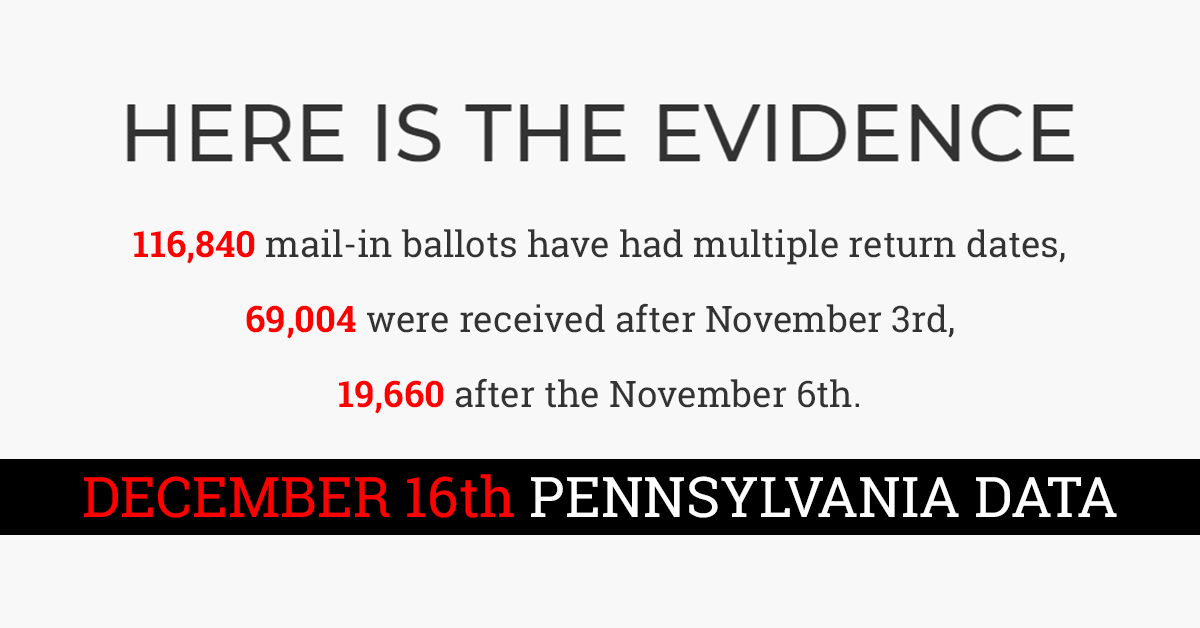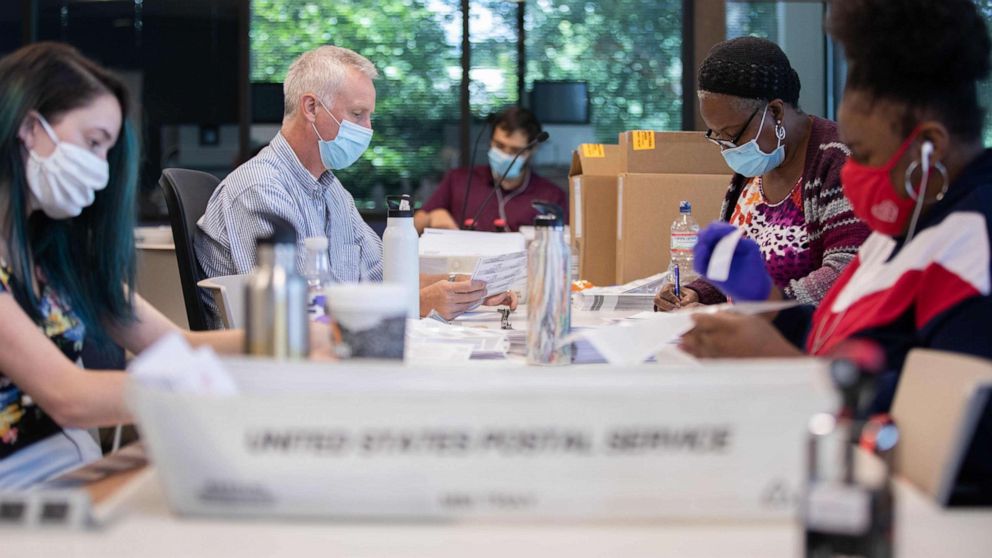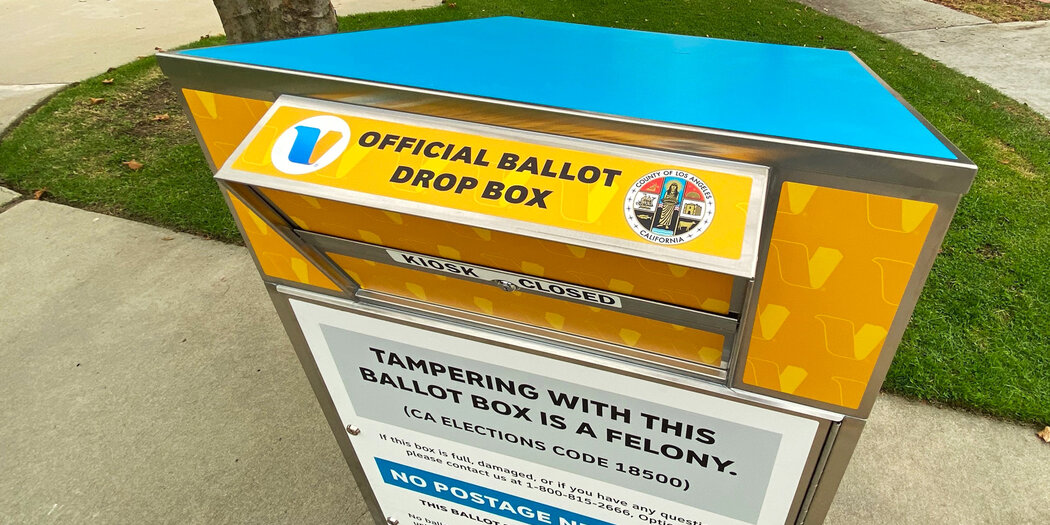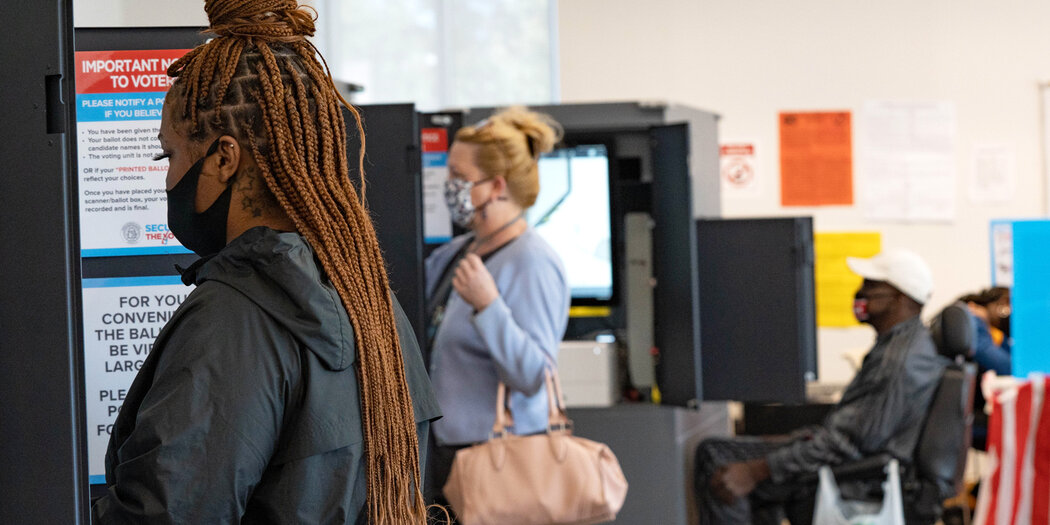The state keeps records and have some have shown not very good ones. There was massive fraud.
The fraud would have to be massive. Otherwise exposing it wouldn't effect the outcome. See how that works?
Dear
Hidden
At this point the "mass fraud" is Misrepresenting to the public and to voters
that it was permissible to change rules involving "unnotarized mail-in ballots" by other means besides vote through State Legislatures.
The people and leaders seeking to correct this misperception and misrepresentation
are both enforcing Constitutional laws specifying that States make election laws by their State Legislatures, and upholding the Code of Ethics for Govt Service by which any person in govt service should uphold the legal regulations of the United States, "never be a party to their evasion", and "expose corruption wherever discovered".
www.ethics-commission.net
Now that both sides accuse the other of deliberately inciting violations of federal laws, this process has become both a hunt to target any possible person accused of guilt by association or by party affiliation, or a process of elimination to discredit anyone accused of violating laws until the only people with credibility left to complain will remain to make these arguments without getting shutdown and censored or bullied as a hypocrite.
I hope the law abiding leaders on both sides of these election related disputes come forward and speak out to ensure laws are enforced, wrongs are corrected, and due process is protected for all persons until these grievances are resolved.
The "mass fraud" is by parties falsely and fraudulently misrepresenting the unconstitutional rule changes as legal.
Now that Congress certified the results legally, we are back where we were with ACA also passed as "Constitutional" by going through the legal motions, while flaws in the process show it was not Constitutional. So we have another "hybrid" situation where people who believe the election and results were Constitutional and those who do not are left in a contradictory situation. Both sides have rights to their faith based beliefs that each can justify for themselves. But neither side has rights to punish the other for their political beliefs by depriving them of representation and freedom to express and exercise their beliefs. Some people DO believe in the Constitution and have rights to correct flaws that otherwise make the election undeterminable. Others DO NOT believe it was unlawful to take shortcuts "due to Covid pandemic conditions" and allow other State Officials to change ballot rules without voting through State Legislatures formally. Both sides deserve representation regardless of their beliefs on what was "good enough" to represent them. This is based on personal beliefs and standards which are rights belonging to people, not courts or federal govt, which is why we likely need a Convention of States and Parties to settle these disputes by offering equal representation to both sides, most likely organized by party to represent the voters by their common beliefs in groups and by regions.
It is up to free choice for people to decide whether or not to respect each other's beliefs.
Some believe the election was Constitutional while others do not and can explain where it violated national laws.
Not even God can force anyone to change their beliefs. Certainly Govt cannot be abused to regulate, mandate or punish people to coerce them into compliance or violation based on their beliefs.
We are heading to a Convention and solution to address these issues where people of all parties can work out better means of equally inclusive representation.
This election isn't the only example of disagreement over the rules. By holding conventions with diverse parties we can solve a lot more problems with partisan interference that have distorted the democratic process to create biased policies discriminating against dissenting citizens left out of the process. A lot more needs to be addressed and corrected, so the entire public will benefit instead of oppressing censoring or punishing people with objections and grievances.




